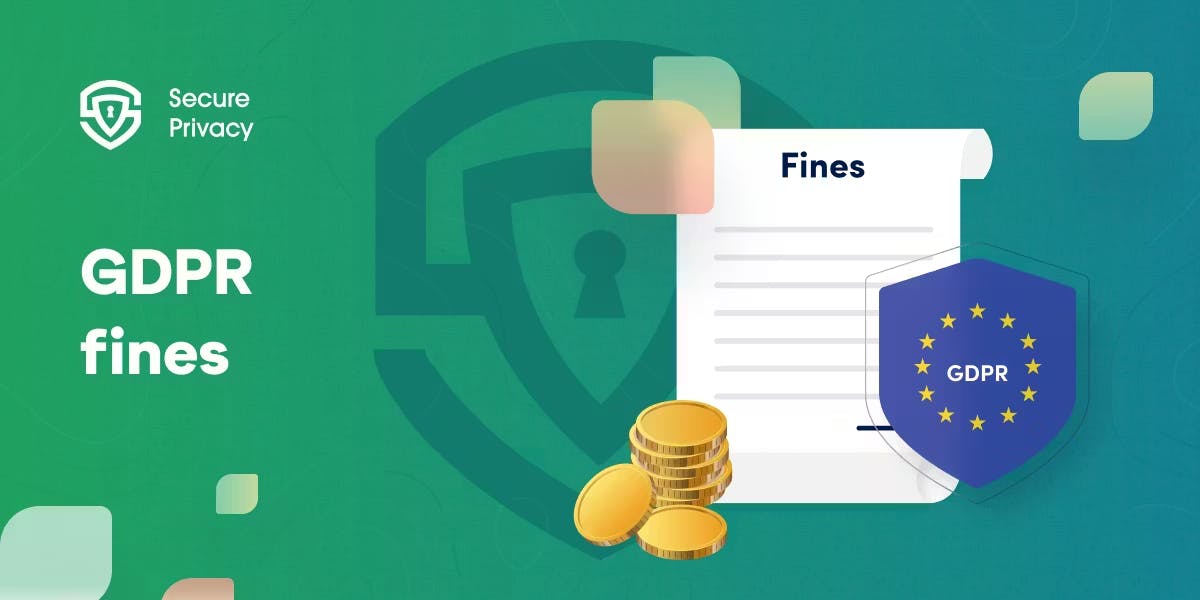Ireland DPC Fines Meta €390 Million for GDPR Breaches
Meta Ireland, a subsidiary of Meta Platforms, has been hit with a record-breaking EUR 390 million (USD 414 million) fine by Ireland's Data Protection Commission (DPC) for GDPR breaches. Learn from this landmark case about the importance of valid consent, transparent data practices, and technical safeguards. Discover the implications for Meta's business and the wider tech industry, and understand how this could have been prevented. Stay compliant and safeguard user data with our insights.
Ireland's Data Protection Commission (DPC) has fined Meta Ireland, the Irish subsidiary of Meta Platforms, EUR 390 million (about USD 414 million) for breaches of the General Data Protection Regulation (GDPR). The fine is the largest ever imposed by the DPC and the second-largest GDPR fine ever issued, after a EUR 50 million fine imposed on Google in 2019.
The GDPR is a comprehensive piece of legislation that sets out strict rules for how companies can collect, use, and store personal data. The law applies to all companies that offer goods or services to individuals in the European Union, regardless of where the company is located.
The DPC is the lead data protection authority for Meta Ireland, as Meta's European headquarters are located in Ireland. The DPC has been investigating Meta Ireland for several years, and the fine is the culmination of that investigation.
What was the violation?
The DPC found that Meta Ireland had violated the GDPR in two ways:
- By failing to obtain valid consent from users to collect and process their personal data for the purposes of targeted advertising. The GDPR requires companies to obtain valid consent from users before collecting and processing their personal data. Meta Ireland argued that it had obtained consent from users by asking them to click a button to agree to the company's privacy policy. However, the DPC found that this was not sufficient consent, as users were not given enough information about how their data would be used.
- By failing to provide users with clear and transparent information about how their personal data was being collected and used. The GDPR requires companies to provide users with clear and transparent information about how their data is being collected and used. Meta Ireland argued that it had provided this information in its privacy policy. However, the DPC found that the privacy policy was not clear and transparent enough, and that it did not adequately explain how Meta Ireland was using users' data for targeted advertising.
What was the decision?
The Irish DPC fined Meta with EUR 210 million for the breaches of the GDPR relating to its Facebook services, and EUR 180 million for breaches in relation to its Instagram services, for a total of EUR 390 million. The DPC's decision is a significant victory for data privacy advocates and sends a strong message to tech companies that they must comply with the GDPR. The fine could also have a major impact on Meta's business, as it could make it more difficult for the company to collect and process personal data for advertising purposes.
What are the implications of the fine?
Meta has said that it will appeal the DPC's decision. However, the fine is likely to have a significant impact on the company's business, as it could make it more difficult for Meta to collect and process personal data for advertising purposes.
The fine could also have a wider impact on the tech industry, as it sends a message to other tech companies that they must comply with the GDPR. The GDPR is a complex law, and it can be difficult for companies to comply with all of its requirements. However, the DPC's decision shows that the law is being enforced and that companies that violate the law will be held accountable.
How could the fine have been avoided?
The fine could have been avoided if Meta had taken steps to comply with the GDPR from the outset. Specifically, Meta should have:
- Obtained valid consent from users to collect and process their personal data for targeted advertising.
- Provided users with clear and transparent information about how their personal data was being collected and used.
- Made it easier for users to control their personal data.
In addition to the fine, the DPC has also ordered Meta Ireland to take steps to bring its processing operations into compliance with the GDPR. These steps include:
- Providing users with clear and transparent information about how their personal data is being collected and used.
- Making it easier for users to control their personal data.
- Restricting the amount of personal data that is collected and processed.
- Implementing technical and organizational measures to protect personal data.
Meta Ireland has until March 2023 to comply with the DPC's orders. If the company fails to comply, the DPC could impose further fines or take other enforcement action.
What can we learn from this case?
Companies can learn several important lessons from this case. First, it is essential to obtain valid consent from users before collecting or processing their personal data. Second, companies must provide clear and transparent information about their data collection and processing practices. Third, companies must implement appropriate technical and organizational measures to protect personal data. Finally, companies may need to appoint a data protection officer (DPO).
Here are some additional things that companies can do to ensure GDPR compliance:
- Conduct regular data protection impact assessments (DPIAs).
- Have a process in place for responding to data breaches.
- Train employees on data protection compliance.
- Keep records of all data processing activities.
By following these steps, companies can demonstrate their commitment to data protection and avoid the risks of non-compliance.
Get Started For Free with the
#1 Cookie Consent Platform.
No credit card required

EU AI Act for CTOs: What Engineering Teams Must Build, Document, and Operationalize
Your product team ships a new AI-powered hiring screening feature. It ranks candidates automatically based on CV data. It is running in production across three enterprise clients in Germany, France, and the Netherlands. Nobody ran a risk classification exercise before launch. There is no technical documentation file. The logging infrastructure captures model outputs but not the decision logic. You have no human override mechanism.

GDPR Fines and Penalties Explained: Calculation, Enforcement Trends, and Risk Mitigation
Your legal team forwards you a letter from a supervisory authority. A data subject complaint has triggered a formal investigation. Your company processed personal data without a valid lawful basis six months ago — a decision made by a product manager who didn't loop in privacy counsel. Now you're looking at a potential Tier 2 fine, which means up to €20 million or 4 percent of your annual global turnover, whichever is greater. You have thirty days to respond.
- GDPR

Privacy Governance for Financial Services: An Operational Framework for Banks and Fintech
Your compliance team has documented your GDPR obligations. But who monitors whether those obligations are being met on Tuesday afternoon when a new vendor API goes live?
- Privacy Governance
- Fintech
